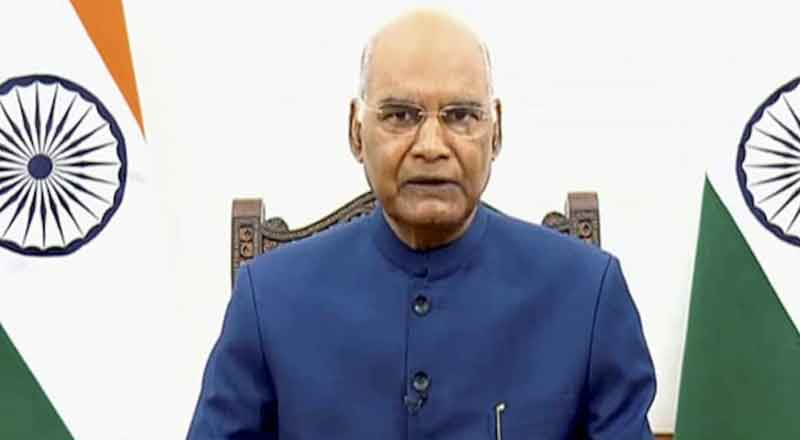- Former President Ram Nath Kovind heads the government-appointed high-level committee on ‘one nation, one election’.
- Saying that he had reached out to all national parties for their suggestions, Kovind said every party had supported the idea of simultaneous polls at some point.
- Mr. Kovind said that holding simultaneous elections would benefit the public and whichever party was in power at the Centre,
- “The funds saved could be used for development work.” He added.
- Kovind said the issue had been examined by a parliamentary standing committee, the NITI Aayog, and the Election Commission.
- Adhir Ranjan Chowdhury, leader of the Congress in Lok Sabha and the lone Opposition voice in the panel, had declined to be a part of the exercise.
Former President Ram Nath Kovind, who heads the government-appointed high-level committee on ‘one nation, one election’, said on Monday that holding simultaneous elections would benefit the public and whichever party was in power at the Centre, adding that the funds saved could be used for development work.
Speaking to reporters in Rae Bareli, Kovind said: “We are requesting everyone to give their positive support to us because this is in the national interest. It does not have anything to do with any particular party. For example, if this is implemented, then the benefit will go to whichever party is in power at the Centre, whether it is the BJP, the Congress, or any other political party. There is no discrimination in this. The biggest benefit will be to the general public. The revenue that comes, the savings can be used for development work.”
Kovind’s remarks come at a time when the high-level committee has invited comments from political parties, having met representatives of the Law Commission of India in its second and most recent meeting, on October 25. Saying that he had reached out to all national parties for their suggestions, Kovind said every party had supported the idea of simultaneous polls at some point. Kovind said the issue had been examined by a parliamentary standing committee, the NITI Aayog, and the Election Commission.
There are many committees reports that have said that the practice of one nation, one election in the country should be implemented again…We [the committee] are trying, along with the public to find a via media. We will give the government recommendations on how we can implement this practice again,” he said.
The high-level committee was set up by the Law Ministry on September 2 to “examine and make recommendations for holding simultaneous elections” to the Lok Sabha, State Assemblies, and local bodies. It has held two meetings so far – on September 23, and October 25. According to sources, the next meeting is likely to be held in the last week of November.
The committee includes Home Minister Amit Shah, Law Minister Arjun Ram Meghwal, former Leader of Opposition in Rajya Sabha Ghulam Nabi Azad, 15th Finance Commission Chairman N K Singh, former Lok Sabha Secretary General Subhash C Kashyap, senior advocate Harish Salve and former Chief Vigilance Commissioner Sanjay Kothari.
Adhir Ranjan Chowdhury, leader of the Congress in Lok Sabha and the lone Opposition voice in the panel, had declined to be a part of the exercise. In a letter to Shah, Chowdhury had said he could not be a part of the committee, the “terms of reference” of which “have been prepared in a manner to guarantee its conclusions”. He called the exercise “an eyewash”.
At the second meeting of the committee, the Law Commission of India made a presentation “elaborating their suggestions and viewpoints on the issue of simultaneous elections”.
While he was President, Kovind had supported the idea of holding simultaneous elections. In his address to the joint sitting of Parliament on January 29, 2018, he said frequent elections led to a “huge burden” on human resources and affected the development process. “Therefore, a sustained debate is required on the subject of simultaneous elections, and all political parties need to arrive at a consensus on this issue,” he had said.
(With inputs from agencies





